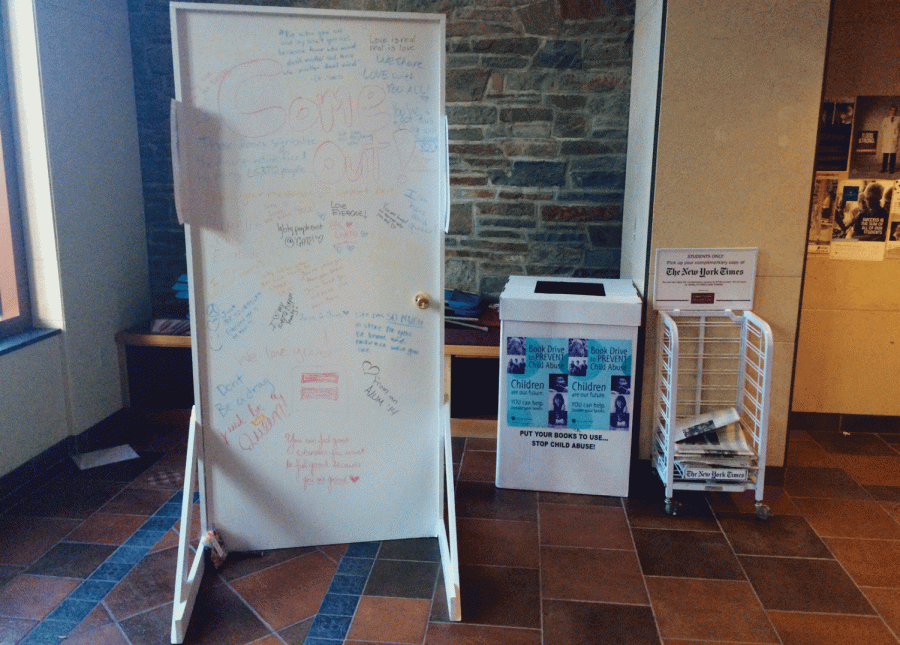Queer Corner: Heteronormativity at Colgate
Have you seen those doors on campus, in Curtis Frank Dining Hall, the O’Connor Campus Center, Case Library and Reid Athletic Center? Those are the LGBTQ Coming Out Doors. Yes, they are meant to play off the “coming out of the closet” phrase. There are markers by these doors for the Colgate community to write words of support toward people who identify as Lesbian, Gay, Bisexual, Transgender or Queer.
When a person decides to “come out,” it can be a stressful experience. Who do you tell first? What will they say? Will your friends understand and support you? Will people see you differently? What will change in your everyday life after the fact? The whole situation can make for a tense experience. These Coming Out Doors are meant to show that people are here to support each other, even if we are still strangers. That’s a pretty beautiful thing, if you ask me.
Of course, there’s the question of why people even have to “come out.” Why don’t heterosexual people come out as straight? It’s because we live in a country where heteronormativity prevails. It is typically assumed, by default, that people are straight until proven otherwise. Hence, if you do not fit within this “norm,” you are expected to go through emotional and
mental stress, make decisions on how to explain yourself and present this private information to the rest of the world. I understand that coming out is different for everyone, but it seems ridiculous that you are expected to tell the world you don’t fit the cookie cutter shape for no reason other than you don’t fit that cookie cutter shape.
Coming out is stressful, no matter what kind of support you have. Even if everything goes perfectly, you are still revealing a deep part of who you are to your friends and family. Some people are better about it than others, some people face more obstacles based on their cultural background and some people never “come out,” instead only mentioning their orientation on a whim in
casual conversation.
Even the term “coming out” is traumatic for some people. Another phrase I’ve heard is “coming to terms,” which implies more of an understanding of what is/was already oneself rather than a newfound discovery made public. It really depends on the person and what they prefer, though the most common term is still “coming out.” Again, I’m frustrated by the fact that coming out has to be a thing. It would be so much easier if we were like puzzles: you couldn’t even guess at what we are until you find and arrange most of the pieces together. Alas, that’s not how the world works.
So go out and write some love on those big white doors on campus. Show your support for the community. Keep in mind that one of the best things you can do for someone you know who is coming out is to be there for support.
Sometimes one of the most encouraging things is just knowing someone is there for you. National Coming Out Day is October 11, so come show some love and support the LGBTQ community.









